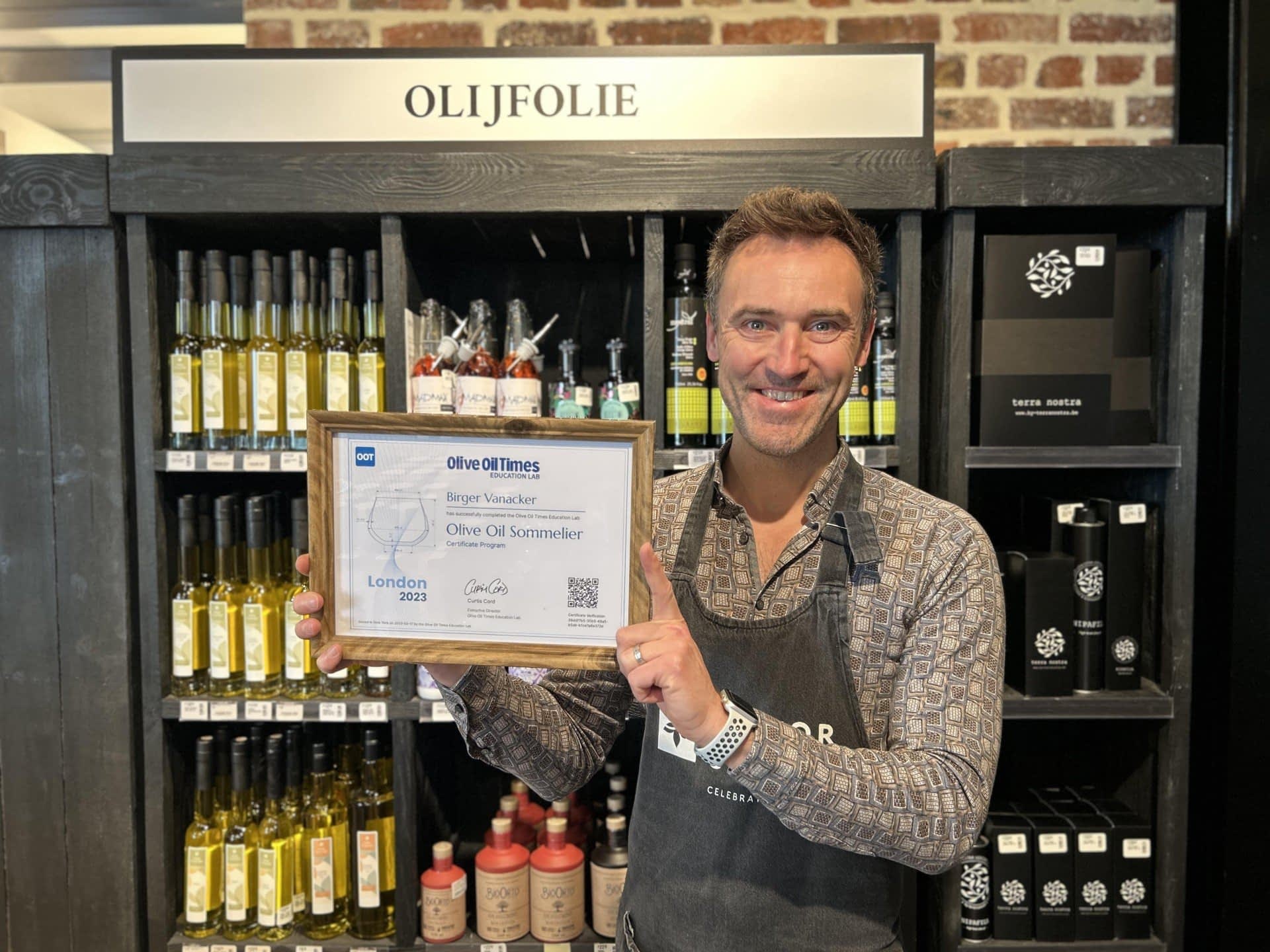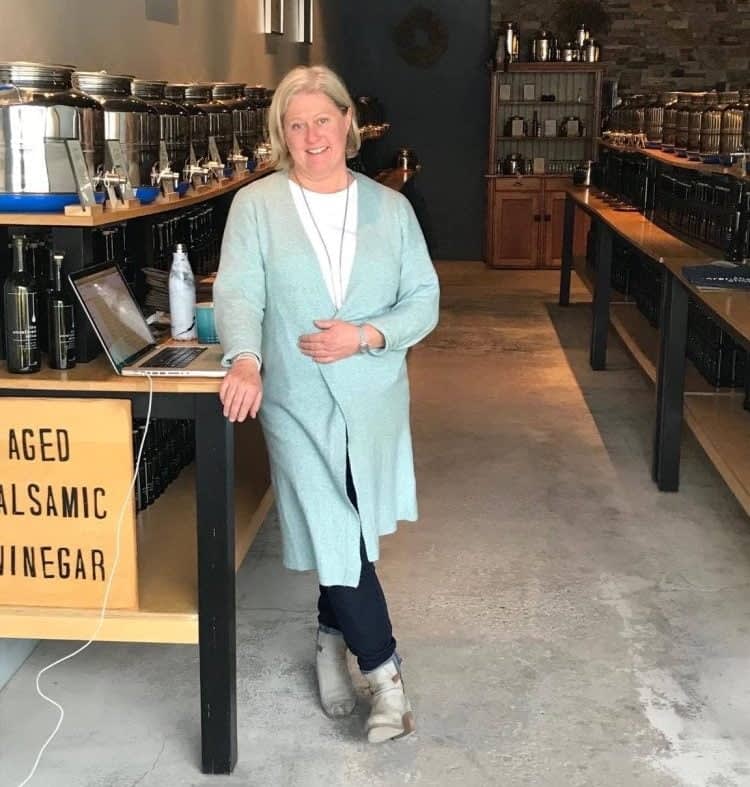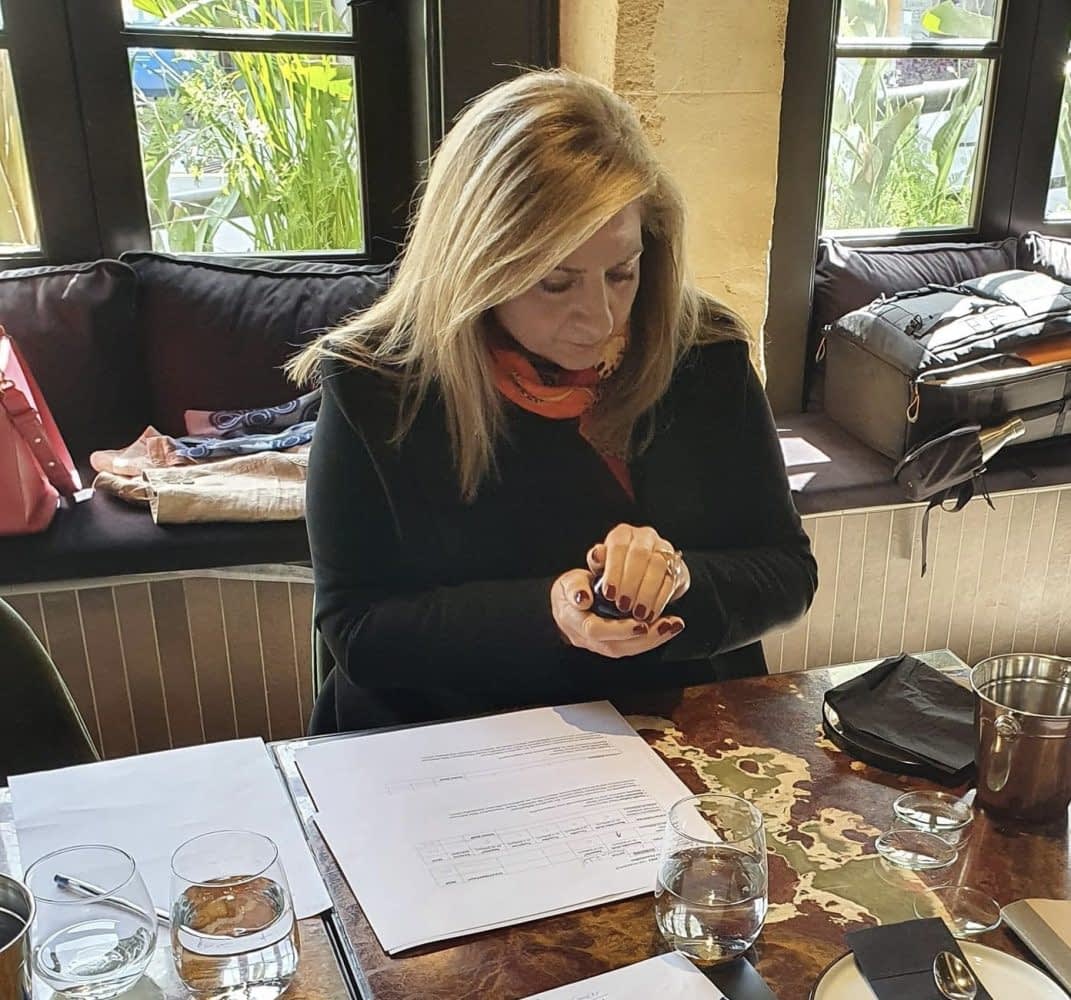Aspiring olive oil sommeliers from Istanbul to Ottawa gathered at the CIEE Global Institute in the Bloomsbury district of London earlier this month to attend the Olive Oil Sommelier Certification Program.
After five days, 31 attendees completed the course, which covered olive oil quality assessment, cultivation and history, harvesting and production, health benefits, chemistry, regions and cultivars, standards and grades, culinary applications and consumer education.
I thought that the time had come to learn how to evaluate olive oil quality. I found the course exceptionally good. Beyond my expectations.
“The program is fabulous; everything is covered,” Christianne Noordermeer Van Loo, a non-executive director in the health, finance and cultural sector who traveled from the Netherlands, told Olive Oil Times.
Noordermeer Van Loo decided to enroll in the course after nearly a decade of producing olive oil as a hobby from a little grove on a property she bought in Umbria.
“I was impressed by the fun I had during the harvest and to have my own extra virgin olive oil,” she said. “I noticed this course a while ago, and it was a dream to enroll, but I thought it was not for people without any or a very little bit of knowledge. In November 2022, I decided to enroll… and they let me in.”
Noordermeer Van Loo plans to identify a more suitable mill to take her olives for transformation next year. She also wants to use her knowledge to enhance her sensory skills and further develop as a taster.
The program proved to be popular among hobby farmers. Mehmet Taki, an asset manager, flew from Istanbul to London to participate in the program after founding his olive farm in Turkey a decade ago.
See Also:Moroccan University to Offer Olive Oil Master’s Degree“I thought that the time had come to learn how to evaluate olive oil quality,” he told Olive Oil Times. “I found the course exceptionally good. Beyond my expectations. It is a very well-balanced program, not only limited to the tasting of the olive oil but also providing solid information on every aspect of the olive oil, from farming to storage, including new trends and practices.”
Taki plans to share his mastery with his farm employees to improve his production. “Furthermore, there are a couple of ideas related to agricultural practices and olive oil milling that I would like to experiment with on my farm and see the results,” he added.
Many olive oil professionals and hobby farmers attended the program to develop expertise and help their businesses.
Birger Vanacker, the owner of an independent delicatessen in Belgium that sells extra virgin olive oil, enrolled in the program to improve his command of the products and educate his customers.

Birger Vanacker
“Since olive oil is such an important part of my sales, I wanted to learn more about it,” he told Olive Oil Times. “Not only for myself to make a better selection in my assortment but also to be more in control of quality and variety.”
“I can better inform my customers and help them choose the right olive oil for their own personal purposes and taste preferences,” he added.
Vanacker plans to use this proficiency to run tasting workshops. He ordered 144 official tasting glasses and will host his first class on May 30.
“I will apply my knowledge to the selection of my assortment, which might seem pretty obvious,” he said. “However, I also would like to pass on what I’ve learned to my customers by educating them through workshops and demos because people still don’t know enough about extra virgin olive oil.”
While Vanacker already knew a bit about olive oil from previous experience, he said the course was valuable due to the wide range of speakers discussing their specific areas of expertise.
“I had no idea that some tasting notes were an indication of bad olive oil,” he said. “Some things that I thought were normal are, in fact, not normal at all.”
Contrasting with Vanacker’s previous experience, Guy Hendrickx, an olive oil sommelier and importer from Belgium, traveled to London to further study the positive sensory qualities of extra virgin olive oil after examining olive oil defects extensively.
“I am an olive oil sommelier and importer of premium quality Italian olive oil, so implementing parts of what I learned will be done rather smoothly on the job,” he said.
“My favorite parts were tasting some really good olive oils and getting to taste some non-Italian olive oils, as I mainly taste a lot of Italian oils,” Hendrickx added.
This year’s edition of the London Olive Oil Sommelier Certification Program was popular among retailers.
Elizabeth Kilvert, the owner of two stores called The Unrefined Olive, traveled from Ottawa to learn more about olive oil and pass that understanding to her customers.

Elizabeth Kilvert
“It is our responsibility as sellers to learn all we can and be a guide to the customer,” she said. “We need to pass on our enthusiasm for olive oil.”
Kilvert saw the course as an essential part of the olive oil sector dialogue. She believes producers and consumers can learn from one another and help the industry grow.
“I want to transfer what I have learned to take the customer on a journey of appreciation for olive oil,” she added. “I think that olive oil needs to be better understood and accessible to everyone.”
While attendees worldwide gathered in central London to further their hobbies or improve their retail selections, Marilena Joannides traveled from Cyprus with a different goal.
“For the past 21 years, I have been involved in researching and promoting the traditional cuisine of Cyprus,” she told Olive Oil Times. “As a Cyprus culinary specialist, I participate in tasting panels for traditional products, among them olive oil.”
“Assessing extra virgin olive oil is one of those things I feel that I am good at, and I wanted to develop this skill further,” she added.

Marilena Joannides
Joannides, who promotes Cypriot cuisine on her television program and at domestic and international events, said she would use what she has learned from the course to educate people everywhere about the organoleptic and healthy qualities of extra virgin olive oil from the eastern Mediterranean island.
“Apart from that, there is work to do with professional chefs, as this is a product of great gastronomic potential,” she said. “I would also like to proceed further with my education regarding the sensory analysis of extra virgin olive oil.”
Most attendees had previous experience with olive growing and oil production and tasting. Still, everyone learned something new and surprising during the program.
“I really never knew that you can smell and taste so many different flavors of fruits and vegetables in olive oils,” Noordermeer Van Loo said. “That was a complete surprise.”
“Another surprise was that despite the local farmers in my surrounding told me that sediment at the bottom is completely normal and absolutely not harmful, I understand now that it is by far better to filter the olive oil before bottling to avoid defects,” she added.
Meanwhile, Hendrickx was reminded how olive varieties have different sensorial attributes depending on where and how they were grown.
“My most surprising learning moment is that olive oil is the only fat that evokes emotion,” Kilvert said. “The smell and taste can transfer you to a field, a farm or a memory.”
Joannides was pleasantly surprised to learn the full extent of global olive cultivation, with commercial groves in 58 countries on six continents.
For Taki, the biggest surprise was the completeness of the program, which he had not expected when signing up.
“It was a recap of my 10 years of experience in five days, plus learning to evaluate olive oils on top of that,” he said. “I wish I had attended the program 10 years ago.”
The next editions of the Olive Oil Sommelier Certification Program will be held in New York City from May 22 to 26 and in San Francisco from September 25 to 29.









